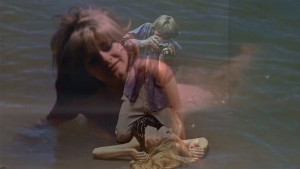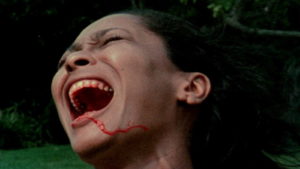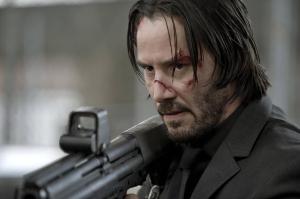
Comic books repeat themselves. This is a fact well known to anyone who reads them. Over decades, we see heroes face similar fates, have their past arcs erased for the sake of bringing in a new twist, or an old twist with a new face. The best comics disguise this repetition well by focusing less on plot devices and grand crossovers and more on exploring how past and current events affect the character at their core. Everyone knows that their favorite character will be removed from their own developing story in service of the grand scheme at some point, and those grand schemes are usually spread out over a ton of comics you either don’t read or aren’t as involving as Marvel or DC want you to think they are. Everyone dreads those comics because they’re usually unsatisfying, expensive, and ultimately pointless. Avengers: Infinity War is that crossover.
Much like their comics, Marvel’s Cinematic Universe has been split into a number of series: Captain America, Thor, Iron Man, The Incredible Hulk, Doctor Strange, Guardians of the Galaxy, Ant-Man, Spider-Man, and Black Panther. The Avengers, as in actual comic books, exists as its own stand-alone work even though it pulls from others. Every series has been involved in a crossover special, Captain America: Civil War being the main tie-in narrative prior to the clusterfuck of characters known as Infinity War.
To say that Civil War is an unwieldly mess that doesn’t know where its strengths lay isn’t a stretch. Its casual introduction of Peter Parker – reminiscent of the way characters would first appear in group comics out of the blue during the Golden Era – was one of its strongest features, but its attempt to incorporate numerous existing characters into a grand-scale showdown is far less successful. For all my complaints about how it came to be though, this fight (between a team divided by incomprehensible political views that are flippantly introduced and disposed of) was innovative in presentation. It took the skills of the individuals and crafted a set piece that took advantage of each one in a unique fashion.
Infinity War takes the scale of Civil War and doubles it, or triples it, or multiplies it to the point where characters are less fleshed out than ever before. It’s a game of chess where everyone is a pawn except for Thanos, Gamora, Thor, Tony Stark, and Peter Parker. Though the attempt to humanize a purple man who wants to commit genocide are well-drawn, they’re less compelling than the Russo brothers think. If anything, the bulk of the emotional heft of this film lays in the hands of Zoe Saldana, who has been carrying Guardians from the very start (and her work with Karen Gillan, woefully underused here, in the subpar Guardians of the Galaxy Vol. 2 is some of the best in the MCU).
It’s in the flashbacks and the few moments of quiet tension between Gamora and both Peter Quill and Thanos in respective situations are the best thing this film has to offer. We get melodrama, we get narrative progression, we get character growth, and we even get some action. In a more interesting MCU, the entire first act of the film would offer us the equivalent of an Infinity War stand-alone comic, exploring the relationship between this “parent-child” duo in past and present.
Robert Downey Jr and Tom Holland, also playing with a surrogate parent-child relationship, have proven over numerous films that they’re a duo whose chemistry can survive any bit of conveniently situational writing. As emotionally exploitative as one scene between the two might be, it’s refreshing to see two characters whose dynamic isn’t sacrificed in the face of a mass crossover event. It’s a strange contrast to Thor, who loses every ounce of familial relationship, as well as past development, in Infinity War.
It’s in Chris Hemsworth’s commitment to the dumb-smart Thor that we find salvation for his character, able to have chemistry with literally any individual he’s paired with in the most pleasant manner. If there’s anything to complain about with Thor, it’s the erasure of Ragnarok from narrative almost entirely; from his eye being brought back to him gaining a new weapon after two hours of film that taught him about inner strength and the power of friendship. Calling it lazy writing isn’t enough; it’s willful ignorance of the texts that build these characters up with stories we love, resulting in a cyclical pattern that has no innovation and leaves no room for excitement when other unique stories are brought up outside of the event cinema.
Other characters have cases made for them as individuals to worry for, but bad scripting and time management leaves heroes like Vision and Scarlet Witch pleading for emotional investment without any real substance. It’s the most bafflingly miscalculated romance since Bruce Banner and Natasha Romanoff were a thing (something this film winks at but otherwise thankfully ignores). Individuals from stand-alone comics like Black Panther are more than present, but barely exist outside of stretching out uninspired fight scenes. If anyone is lucky, it’s Ant-Man and his supporting force, blessed in their complete exclusion from Infinity War.
A whirlwind of bodies and weapons and fists is what every set piece in Infinity War looks like outside of the couple that Peter Parker contributes to in all his goofy but effective planning. For a film shot entirely in IMAX, the impact of the Wakanda battle pales in comparison to any number of grand-scale fights, the cream of the crop obviously being Peter Jackson’s Lord of the Rings films. Its most unique visual moments unsurprisingly come when the screen is limited to Gamora and Thanos, whether that’s the soul stone sequence or the glowing, melancholic finale almost reminiscent of End of Evangelion. It’s as if the Russos who delivered some of the most engagingly shot and choreographed fights of the MCU in Winter Soldier are dead and gone at this point, which is an absolute shame considering how present they are and will continue to be.
There’s no point in diving into the numerous ways that this film could have come together instead of the pile of bodies thrown at a large problem that need to be solved. There’s no point in hashing out the idea of these films being predictable and resurrection for every death being inevitable. There’s no point because these movies are following a pattern that has been in existence for decades. And in an industry as frequently uninspired and prone to repetition as this, where consumers are content to swallow the same thing with different packaging, there’s nothing left to do but shrug it off as we slide down the chute and into the slaughter.
Avengers: Infinity War doesn’t manage to prompt excitement in me, but it doesn’t prompt any excessively disappointment either. I know what I’m getting now and, for all my complaints, I think I’m just indifferent to it all now. Films like Black Panther and Thor: Ragnarok will be a pleasant escape before returning me to the dullness of a universe with nothing new left to give. And I guess that’s the best we can hope for.
–
Directed by Anthony Russo and Joe Russo; written by Christopher Markus and Stephen McFeely; Robert Downey Jr., Chris Hemsworth, Mark Ruffalo, Chris Evans, Scarlett Johansson, Benedict Cumberbatch, Don Cheadle, Tom Holland, Chadwick Boseman, Paul Bettany, Elizabeth Olsen, Anthony Mackie, Sebastian Stan, Danai Gurira, Letitia Wright, Dave Bautista, Zoe Saldana, Josh Brolin, and Chris Pratt.; 149 minutes.
Avengers: Infinity War is now playing everywhere.



 Derek
Derek
 Isabelle
Isabelle